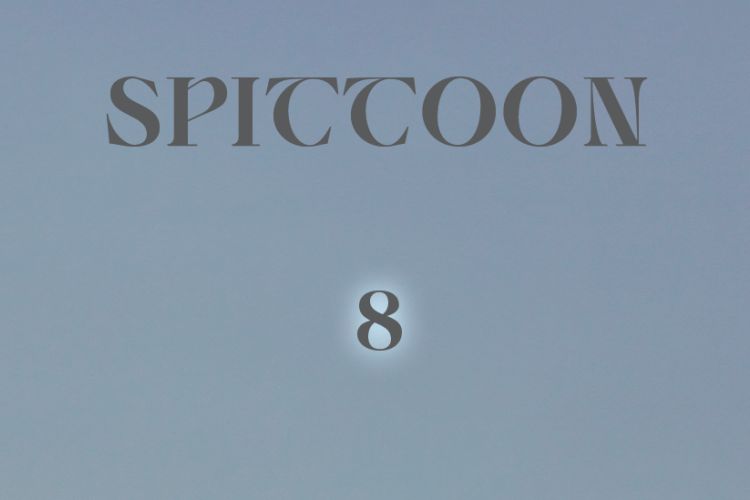Switch On Tour: Electronic Audio and Visuals from Switzerland and China
--Exclusive Interview with Organizer, Michael Vonplon
Switch back ten years ago and you’ll find the roots of this weekend’s SWITCH ON touring event. The cross-cultural event linking Swiss and Chinese electronic artists kicked off last Friday in Shanghai, gathering together more than 350 clubbers. The tour arrives in Beijing this Friday night at Tango with BaiCai’s special guest, Luciano, founder of Cadenza Records. The outstanding DJ and prolific producer is headlining the two-story extravaganza that will run between Mango and Tango’s main floor. On Saturday night the tour closes at White Rabbit with a notable line-up of live acts, visual artists, and DJs.
The key figure behind all of this is Swiss national, Michael Vonplon, who founded the Cheesebeat party label in Beijing in 1996. Cheesebeat is also credited for hosting the first outdoor rave on the Great Wall, amongst other feats of marking electronic music history in the capital. In many ways, SWITCH ON is a culmination of all that’s passed and a promising outlook at what Beijing’s progressive nightlife scene has in store.
TBJ: What’s the connection between Switzerland and China’s music scenes?
MVP: Switzerland's commitment to cultural exchange between the two countries is famous throughout the Chinese music scenes. Chinese and Swiss artists' dialogue in the course of the last decade has broadened perspectives and led to prolific co-productions. Cheesebeat and Miro China's events gave rise to many beneficial contacts for Chinese and Swiss artists, for musicians in particular. Switch On is intended to consolidate and extend this creative network. A firm foundation has been built over many years. Now it is time to use it. The primary aim of the upcoming event series, ' ' is to promote creative exchange and informed debate between Swiss and Chinese musicians, visual artists and cultural event organizers. Furthermore, it is aimed to encourage a cultural scene that works creatively and independently in China.TBJ: Switch On is supported by Pro-Helvetia, The Swiss Arts Council, but this event is huge. Who are your co-organizers?
MVP: Katrin Steffen and Raffael Dörig are part of the organizers of the Shift electronic arts festival in Basel, Switzerland, which features concerts, an exhibition, a conference, as well as video and film programs. They are both art historians and work as curators. At Shift, they are co-responsible for the music program (Katrin Steffen) and the exhibition (Raffael Dörig).
This year's Shift festival also featured a talk by Chinese artists/curators Zhang Ga and Aaajiao and concerts by Huzi and 8gg from Beijing, as well as some of the Swiss artists involved in Switch On. In a way we have already started Switch On at this year's Shift festival. As said before, it is my goal to have more independent institutions in Switzerland working with Chinese artists and I am very happy to have the organizers of the Shift festival on board.
TBJ: What's your personal experience and connection to China and the electronic music scene here in Beijing?
MVP: Previously, I lived in China from 1996 until 2001. I was one of the first to organize and promote electronic music in China. At the time, I was looking for a scene where people would meet to let off steam, be free and have fun.
First, I began organizing small events in the back courtyard of the hutong flat I was sharing with Chinese friends In the beginning, it was mainly just Western visitors that came. The few Chinese who passed by stared at the turntables almost in disbelief. Only a few punk-types would start dancing to the sound.
Little by little we dared to put on our happenings in public. When the police drove us out of one little street, we would meet again the next evening in another lane nearby. A few bars and little clubs started hiring me for a little money, and I’d bring along my own record-playing equipment. I was merely happy to get the Chinese to overcome their inhibitions and come out of themselves.
The scene grew from there, and soon people were getting together in different places on a weekly basis. I befriended a well-known Chinese radio journalist (Youdai) who was trying at the same time, without success, to build up a pop-music scene. We quickly found common interests and, in no time, things started happening: we rented elaborate sound equipment, artists decorated the halls, guest musicians were invited and soon people were dancing in the most incredible places.
In 1998 we were the first to reach the Great Wall. Imagine a Far Eastern multicultural party troupe of six hundred, consisting of Chinese artistic types, musicians, punks, MCs, journalists, embassy personnel, fashion designers, singers and foreign ravers, triad personalities and further illustrious party-goers celebrating with arms raised far into the morning hours. The teaming-up of punk and techno set the foundation for what happened later, as punk or rock bands also started to mix in at parties and concerts.
Added to the DJ sets, punk rockers gave the shows more of a live feeling and greater vitality. I loved the creativity during that time. Today it's unthinkable for punk and techno bands to appear together. But in China this was possible. The fulminating electronic sound and the raw punk style were a commercial success each in their own way. In the initial phase they even surpassed pop and rock. It was as if the music scene in China got a new kick.
TBJ: When and how did you start bringing Chinese artists to Switzerland? What was the experience/turn-out of that?
MVP: In order to establish and maintain dialogue between the two countries' scenes, ongoing now for over a decade, I’ve invested a lot of patience and even more time. DJ Yang Bing was the first to play in clubs in Zurich and Bern in the year 2000.
A year later I invited more then 30 Chinese to Zurich participate and party with us on a self-designed "lovemobile" at the Zurich Street Parade of Zurich. We were THE attraction of the Parade with more then a million participants.
As a result of intensive discussions and several collaborations over the last few years, a Swiss-Chinese artists' and producers' network based on mutual trust has come into being. A number of individuals from both countries have benefited in recent years from precisely this type of contact and the goal is to continue its facilitation and extend it.
Artistically, I am not interested in "big names", instead I prefer to consciously foster dialogue and exchange at the source, in local scenes. Through many encounters, I think already a lot of prejudice has been fought off. In Switzerland the audience gains insight into urban life in China. The fact that the young Chinese performers quite naturally employ the same aesthetic and musical means, as do those in avant-garde circles in Switzerland, comes as a big surprise to many Swiss people.
TBJ: Where’d you come up with the name for the project? It seems like there's some word-playing going on in there somewhere.
MVP: Absolutely. SWIT-zerland and CH-ina = "Switch", and switching on gear is a basic thing in electronic arts.
TBJ: How were the artists for SWITCH ON selected?
MVP: We wanted to bring some of the most interesting electronic music from Switzerland to China, with a range from rather experimental stuff to cutting edge dance music.
Strotter Inst. & Flo Kaufmann are really experimental and create their music in a highly unusual way, with home made machines and modified record players. They are very accessible, their shows are fascinating to watch, as there is a very visual side to their project and handling their strange machines.
Larytta mark the edge of the experimental, a pop appeal and dance music. Their new album got them some well-deserved international attention and I wonder how the Chinese audience will react to their strong humorous side. "Galoppierende Zuversicht" (“Galloping Confidence”) played in China in 2003--they are a fantastic live act. Their music does not come from laptops, but from home made sample machines. The two are also well known DJs in Europe and I am already excited for their DJs sets at White Rabbit.
TBJ: Was there any specific pairing between the Swiss and Chinese artist line-ups?
MVP: All Chinese artists, the ones in Shanghai and the ones in Beijing have been invited to Switzerland before and know the Swiss scene pretty well. For some years they have been in consistent dialogue with producers and music artists from Switzerland. It goes without saying, that from a musical point of view, both sides work on same level of understanding of electronic music.
TBJ: Can you tell me a little more about the visual artists, and how they will enhance the audio experience?
MVP: The famous Beijing duo 8gg, who will VJ the events in Beijing, will use video material that they gathered on their journeys to Switzerland (they have been invited to Switzerland by MiroChina several times over the years, and this year, they played at Shift festival) - so they will bring some visual souvenirs and a big part of the visual side of this event will be based on a look at Switzerland through Chinese eyes.
Larytta has often collaborated with visual artists. They also work as graphic designers and artists - so they are very visual people. For Switch on, they will perform together with video artist Tatjana Rhis. They developed a collaborative project especially for this occasion.
Strotter Inst. & Flo Kaufmann come from a very visual side, as the creation of sound on their modified turntables is often very visible and fascinating to watch. For example, they often put things on the turntables that hit the tone arm with every round and thus creates a rhythmic percussion sound. The antithesis to the black box of the laptop...
TBJ: What do you hope the overall outcomes will be from this tour?
MVP: The unique network established in recent years within the Swiss and Chinese music scenes will hopefully be maintained and also extended from the tour. If creativity is to survive on China's musical landscape--sub-cultures must acquire viable structures. There is, therefore, a dire need for people who are willing to use their versatile networks to catalyze and stabilize the music scene – without fixing their gaze solely on a quick return of investment. Hopefully, "Switch On " will contribute its part for the music scene and provide vital support to a cultural scene that works creatively and independently in China.
Links and Sources
The Beijinger:
BaiCai welcomes Luciano
Switch On Tour






